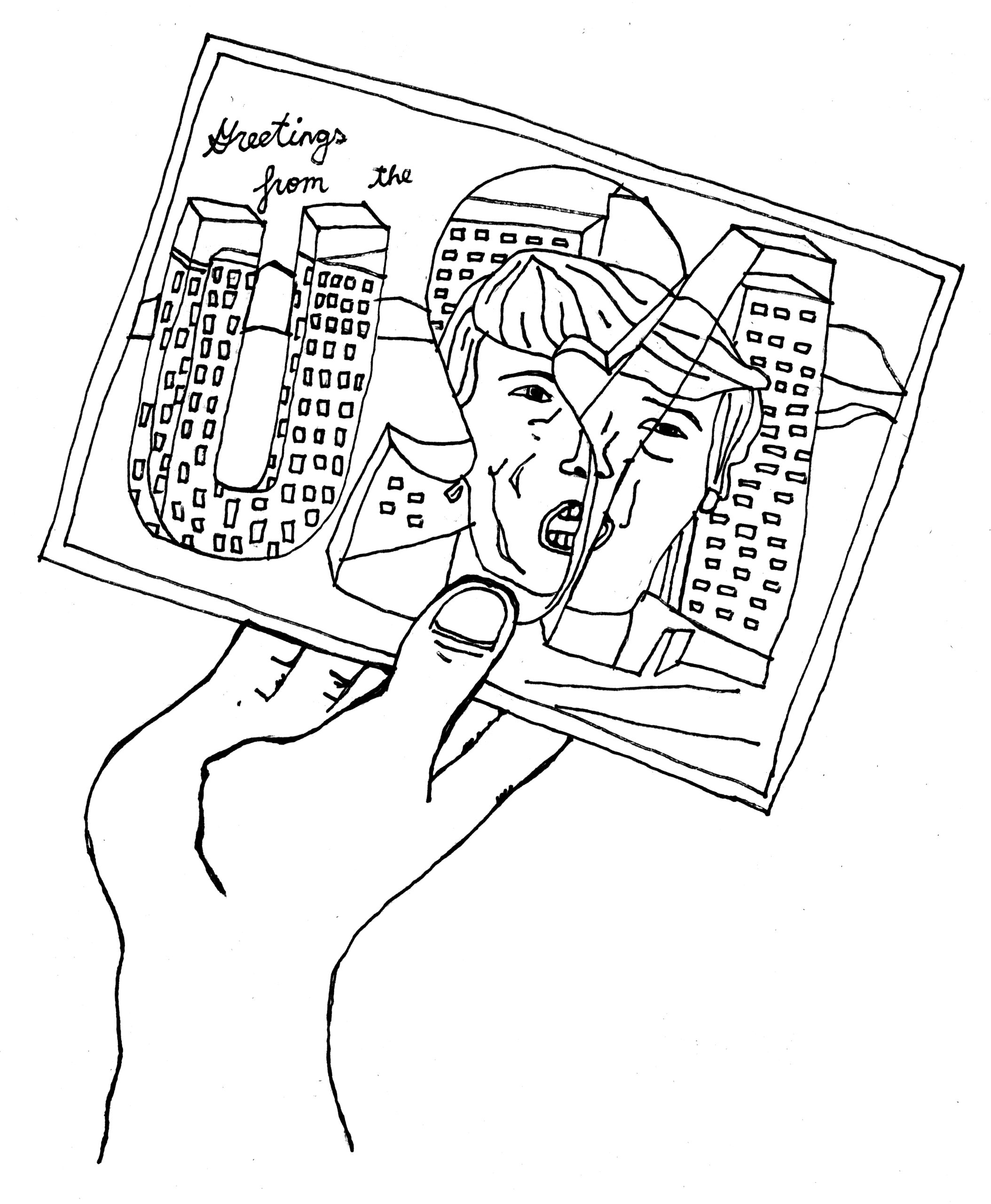The failed state of the union: a stable American system still reinforces top-down inequality
May 5, 2017
 This
piece represents the opinion of the author
.
This
piece represents the opinion of the author
.
This column is a response to the piece “The state of the union remains strong through Trump’s first months.” In their column, Ezra Rice and Francisco Navarro write hopefully about our ability to preserve the American system through Donald Trump’s four years as president: “Though millions of Americans remain worried for the future, we can be reassured by the power of our American system and be certain that the state of our union remains strong.”
To me, this positive regard for our system ignores the ways our status quo was failing the majority of Americans before Trump; it also conflates the prosperity of the American people with the stability of our government.
An important premise for their argument is outlined in their second paragraph: “Much of Bowdoin, along with the national media, characterized the election as an ultimate threat to American democracy. They overlook the Civil War, world wars, Great Depression, presidents’ assassinations, struggles for civil rights… Incredibly, after each difficult, tragic, discouraging affair, we emerged stronger.”
Rice and Navarro characterize the world wars, the Great Depression, and the systemic racism leading to the civil rights movement as threats to our democracy, which we overcame. But our government didn’t enter the Second World War to protect democracy from the ideological and moral threat posed by Adolf Hitler- not when Poland was overtaken or even in response to Pearl Harbor. We unofficially entered the war when we placed an embargo on Japan after they threatened American economic interests. During the war, we interned our own people.
The civil rights movement was not a response to a “threat to American democracy” but a response to American democracy itself. The movement’s momentum was then channeled by that democracy into concessions that hardly changed the de facto situation of many. In the late 1960s, the FBI assassinated Fred Hampton. The Nixon administration admitted to starting the War on Drugs as a way of disrupting black communities. We continued to criminalize blacks, and the prison industry grew.
The values of the American government led us into the Great Depression and both world wars and have kept us in a permanent state of conflict since 1941. Corporate gain, the benefit of the wealthy, shaped each of these actions. Our economy emerged stronger from World War II most markedly in terms of corporate profit, and still today 20% of Americans control 85% of the wealth.
Rice and Navarro use this economy to show that our nation is doing well: “At 4.7 percent, the unemployment rate falls well below our 70-year average of 5.81 percent… new home sales double the 2013 numbers.” The unemployment rate has returned to what it was pre-recession; it doesn’t take into account underemployment or the prison population. The authors mention an increase in homeownership without mentioning the average mortgage debt. A good economy is important for stability, but not with such unequal distribution of wealth.
It is unclear in the article if the authors are lauding our government or our people. In places, Rice and Navarro write about a gridlocked Congress empowering local activism. At other points, they maintain that although millions are worried, the American system remains strong. These two statements contradict each other. The American system is strong in its gridlock and in its ability to reduce and redirect the strength of the people. What makes the government strong may temporarily stabilize the American system, but it doesn’t ensure the welfare of the people.
The top-down policies of the federal government have led to urban, cultural and political decline. We are exhibiting what author Jane Jacobs describes as signs of an impending Dark Age: distrust of politics and politicians, environmental decline, crises in our urban centers and an “enlarging gulf between rich and poor along with attrition of the middle class.”
Rice and Navarro say: “our system has so far overcome any perceived threat,” speaking only of the fact that “the Affordable Care Act held, the ‘Muslim ban’ remains blocked and the media… is empowered.” They neglect discussion of the threats we haven’t overcome: failing schools, segregated neighborhoods, the privatization of prisons, police brutality, foreclosures, dying factory towns. These are the threats at the local level, the threats inherent in our system. These are the forces eroding the stability that we never had. America wasn’t built on a strong foundation of equality for all. America was built on misrepresented government motives and tensions fostered between different races and between immigrants and non-immigrants.
We need community and local change, as the authors suggest. We need local government at the forefront. Not to defend what we had before Trump was elected, but to create what we have never had: a truly strong country from the bottom up.
Bridget Kranz is a member of the Class of 2016


Comments
Before submitting a comment, please review our comment policy. Some key points from the policy: